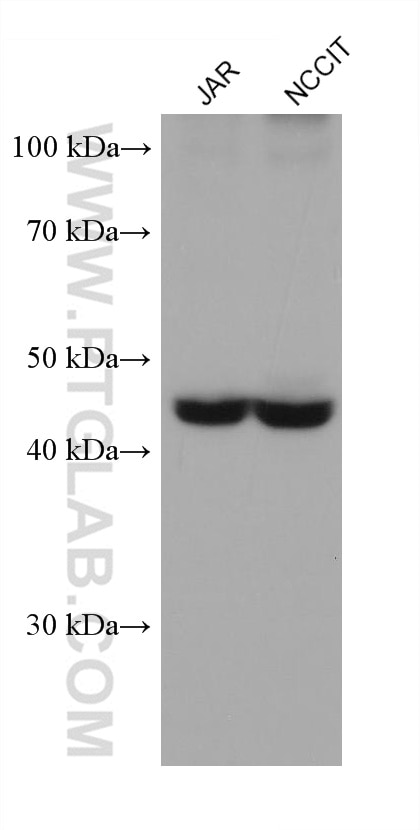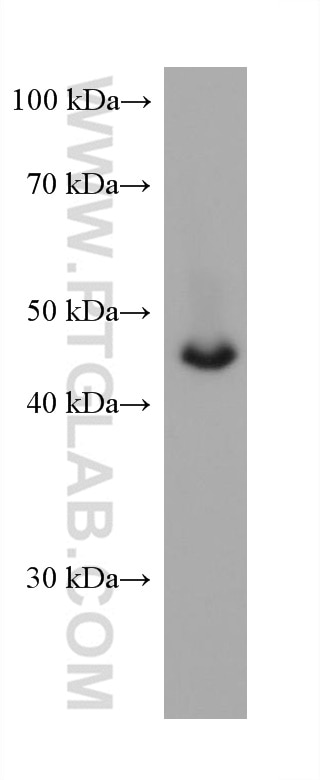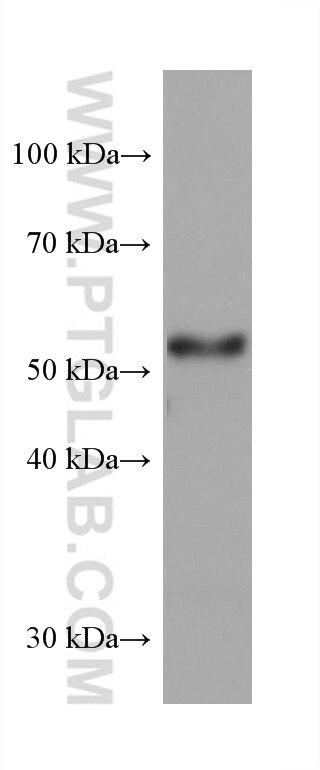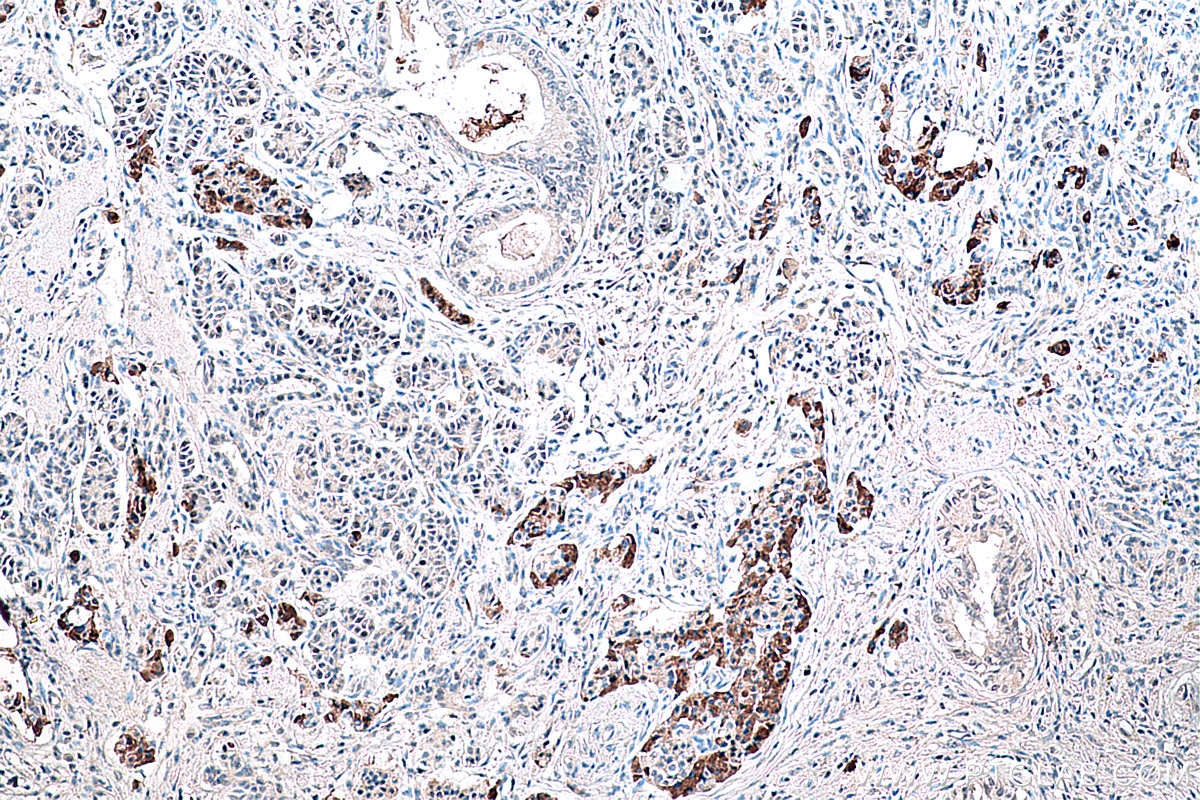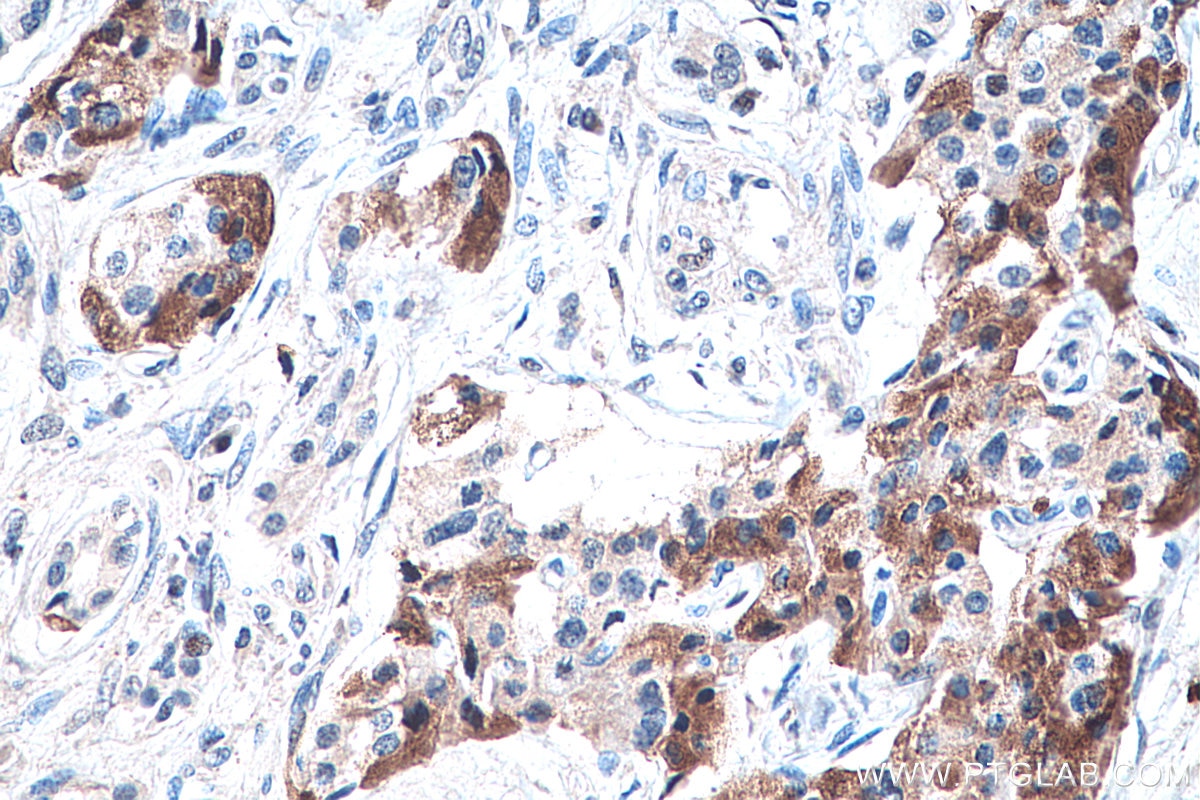Validation Data Gallery
Tested Applications
Recommended dilution
| Application | Dilution |
|---|---|
| It is recommended that this reagent should be titrated in each testing system to obtain optimal results. | |
Product Information
67923-1-PBS targets DLK1 in WB, IHC, Indirect ELISA applications and shows reactivity with human, pig samples.
| Tested Reactivity | human, pig |
| Host / Isotype | Mouse / IgG1 |
| Class | Monoclonal |
| Type | Antibody |
| Immunogen | DLK1 fusion protein Ag30916 相同性解析による交差性が予測される生物種 |
| Full Name | delta-like 1 homolog (Drosophila) |
| Calculated molecular weight | 41 kDa |
| Observed molecular weight | 45-60 kDa |
| GenBank accession number | BC007741 |
| Gene Symbol | DLK1 |
| Gene ID (NCBI) | 8788 |
| RRID | AB_2918675 |
| Conjugate | Unconjugated |
| Form | Liquid |
| Purification Method | Protein G purification |
| UNIPROT ID | P80370 |
| Storage Buffer | PBS only{{ptg:BufferTemp}}7.3 |
| Storage Conditions | Store at -80°C. |
Background Information
DLK1, also named PREF1, FA1, or pG2, is a transmembrane protein belonging to the epidermal growth factor (EGF)-like superfamily (PMID: 8095043). It contains six EGF-like repeats in the extracellular region. DLK1 is abundant in preadipocytes and regulate adipocyte differentiation negatively (PMID: 8500166). Deficiency of DLK1 gives rise to growth retardation and accelerated adiposity in mouse model. Expression of DLK1 is found in tumors with neuroendocrine features that implies DLK1 may be involved in neuroendocrine differentiation (PMID: 8095043). It has been reported overexpression of DLK1 could lead to the development of metabolic abnormalities by impairment of adipocyte function in mice (PMID: 12588883). The gene of DLK1 maps to chromosome 14q32, and encodes a 383-amino acid protein with a calculated molecular mass of 41 kDa. In preadipocytes, multiple discrete forms of DLK1 protein of 45-60 kDa are present, owing in part to N-linked glycosylation (PMID: 8500166).
